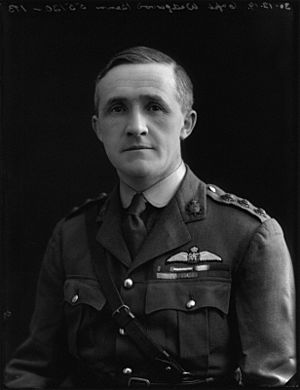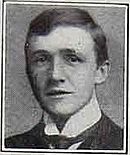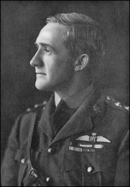William Wedgwood Benn, 1st Viscount Stansgate facts for kids
Quick facts for kids
Air Commodore
The Right Honourable The Viscount Stansgate
|
|||||||||||||||||||||||||||||||||||||||||||
|---|---|---|---|---|---|---|---|---|---|---|---|---|---|---|---|---|---|---|---|---|---|---|---|---|---|---|---|---|---|---|---|---|---|---|---|---|---|---|---|---|---|---|---|
 |
|||||||||||||||||||||||||||||||||||||||||||
| Secretary of State for India | |||||||||||||||||||||||||||||||||||||||||||
| In office 7 June 1929 – 24 August 1931 |
|||||||||||||||||||||||||||||||||||||||||||
| Monarch | George V | ||||||||||||||||||||||||||||||||||||||||||
| Prime Minister | Ramsay MacDonald | ||||||||||||||||||||||||||||||||||||||||||
| Preceded by | The Viscount Peel | ||||||||||||||||||||||||||||||||||||||||||
| Succeeded by | Sir Samuel Hoare, Bt | ||||||||||||||||||||||||||||||||||||||||||
| Secretary of State for Air | |||||||||||||||||||||||||||||||||||||||||||
| In office 3 August 1945 – 4 October 1946 |
|||||||||||||||||||||||||||||||||||||||||||
| Monarch | George VI | ||||||||||||||||||||||||||||||||||||||||||
| Prime Minister | Clement Attlee | ||||||||||||||||||||||||||||||||||||||||||
| Preceded by | Harold Macmillan | ||||||||||||||||||||||||||||||||||||||||||
| Succeeded by | Philip Noel-Baker | ||||||||||||||||||||||||||||||||||||||||||
|
|||||||||||||||||||||||||||||||||||||||||||
| Personal details | |||||||||||||||||||||||||||||||||||||||||||
| Born | 10 May 1877 Hackney, London |
||||||||||||||||||||||||||||||||||||||||||
| Died | 17 November 1960 (aged 83) Westminster, London |
||||||||||||||||||||||||||||||||||||||||||
| Nationality | British | ||||||||||||||||||||||||||||||||||||||||||
| Political party | Liberal Labour |
||||||||||||||||||||||||||||||||||||||||||
| Spouse |
Margaret Holmes
(m. 1920) |
||||||||||||||||||||||||||||||||||||||||||
| Children | 4, including Tony Benn | ||||||||||||||||||||||||||||||||||||||||||
| Parents | Sir John Benn, 1st Baronet Elizabeth Pickstone |
||||||||||||||||||||||||||||||||||||||||||
| Alma mater | University College, London | ||||||||||||||||||||||||||||||||||||||||||
| Awards | DSO (1917) DFC (1918) Bronze Medal of Military Valor (Italy; 1918) |
||||||||||||||||||||||||||||||||||||||||||
| Signature | |||||||||||||||||||||||||||||||||||||||||||
| Military service | |||||||||||||||||||||||||||||||||||||||||||
| Allegiance | |||||||||||||||||||||||||||||||||||||||||||
| Branch/service | |||||||||||||||||||||||||||||||||||||||||||
| Years of service | 1914–1918, 1940–1945 | ||||||||||||||||||||||||||||||||||||||||||
| Rank | Air Commodore | ||||||||||||||||||||||||||||||||||||||||||
| Battles/wars | First World War Second World War |
||||||||||||||||||||||||||||||||||||||||||
William Wedgwood Benn, 1st Viscount Stansgate (born May 10, 1877 – died November 17, 1960) was an important British politician. He started his career with the Liberal Party and later joined the Labour Party. He was also a brave officer in the Royal Air Force. He held two big jobs in the government: Secretary of State for India from 1929 to 1931, and Secretary of State for Air from 1945 to 1946. He was the father of another famous politician, Tony Benn.
Contents
Early Life and School
William Wedgwood Benn was born in Hackney, London. He was the second son of Sir John Benn, 1st Baronet. His middle name, Wedgwood, came from a distant family link to Josiah Wedgwood, who was famous for pottery. William went to school in Paris at the Lycée Condorcet. He also studied at University College, London.
A Career in Politics
William Benn became a Member of Parliament (MP) for the Liberal Party in 1906. He represented an area in east London called St George's. His father had also been an MP for the same area before him.
From 1910 to 1915, he worked in the Liberal government as a Lord of the Treasury. This role involved helping to manage the government's business in Parliament.
In 1918, he was elected as an MP for Leith in Scotland. During the years 1924–1929, when the Conservative Party had most of the power, he worked with other Liberal MPs. They tried to challenge the government's decisions.
In 1927, he decided to leave the Liberal Party and also stepped down from Parliament.
Joining the Labour Party
The next year, William Benn returned to Parliament as a member of the Labour Party. He represented Aberdeen North. The leader of the Labour Party, Ramsay MacDonald, saw how talented he was.
Benn became Secretary of State for India from 1929 to 1931. This was a very important job at the time. He also became a member of the Privy Council in 1929. This is a group of senior advisors to the King or Queen.
However, when Ramsay MacDonald formed a special government with the Conservatives, Benn did not agree. He lost his seat in the 1931 election. He came back to Parliament in 1937, representing Manchester Gorton.
In 1942, William Benn was given a special title: Viscount Stansgate. This meant he became a member of the House of Lords. Two years later, he helped rebuild the government in Italy after the war.
In 1945, he became Secretary of State for Air in Clement Attlee's Labour government. He held this job until October 1946. After that, he continued to serve in the House of Lords until he passed away.
From 1947 to 1957, Viscount Stansgate was the President of the Inter-Parliamentary Union (IPU). This is a worldwide group of national parliaments. He helped bring new countries from Asia, the Middle East, and Africa into the IPU. He also helped Eastern European countries rejoin, making the IPU more global.
Military Service
Even though he was 37 when the First World War began, William Benn joined the army in 1914. He became an officer in the Middlesex Yeomanry.
In 1916, he became an observer flying officer in the Royal Flying Corps. He then led a seaplane observer squadron. He served bravely during the Battle of Gallipoli.
He was awarded the DSO in 1917 for his excellent service. In 1918, he joined the Royal Air Force.
Distinguished Flying Cross
In September 1918, he received the DFC. This award was for his bravery and skill as an observer.
His award citation said he was a "gallant observer of exceptional ability." It mentioned a time when his bombing plane had to fly without its escort. Captain Benn's plane led the mission and successfully dropped bombs on an enemy airfield. On the way back, they were attacked by enemy planes but managed to get away. He also organized a special night flight over enemy lines, which was very successful. The citation praised his "splendid example of courage."
In September 1918, he also took part in the first military parachute mission. He and another pilot flew a special plane to drop a spy behind enemy lines in Italy. For this, he received the Bronze Medal of Military Valor from the Italian Government. After the war, he left the RAF in 1918.
Second World War Service
When the Second World War started, William Benn was in his early 60s. But he still wanted to help. He rejoined the Royal Air Force Volunteer Reserve in 1940.
He quickly rose through the ranks. By 1944, he was an acting Air Commodore. He worked as the Director of Public Relations at the Air Ministry.
Even at 67 years old, he flew several missions as an RAF Bomber Aircrew gunner. He might be the oldest person to have done this. He left the RAF in 1945, keeping his rank of Air Commodore.
Family Life
Lord Stansgate married Margaret Holmes in 1920. They had four children.
His oldest son, Michael Wedgwood Benn, sadly died in the Second World War in 1944.
William Wedgwood Benn passed away in November 1960 at the age of 83. His second son, Anthony Wedgwood Benn, inherited his title. However, Tony Benn later changed the law so he could give up the title and stay in the House of Commons.
His youngest son, David Wedgwood Benn, became an expert on Russia and Eastern Europe. He worked for the BBC for many years.
Images for kids
 | Jessica Watkins |
 | Robert Henry Lawrence Jr. |
 | Mae Jemison |
 | Sian Proctor |
 | Guion Bluford |



